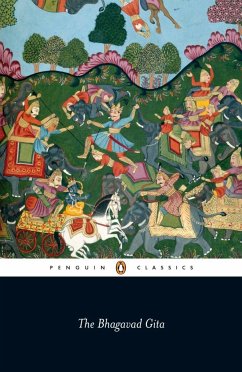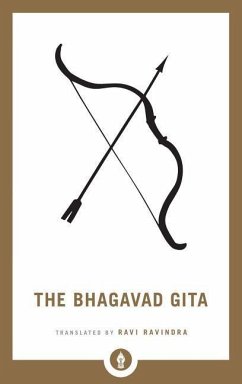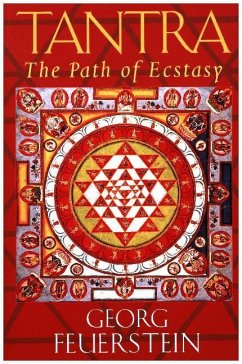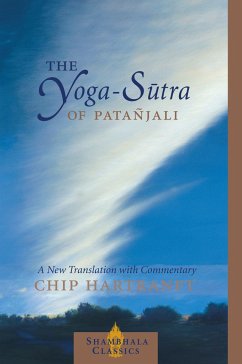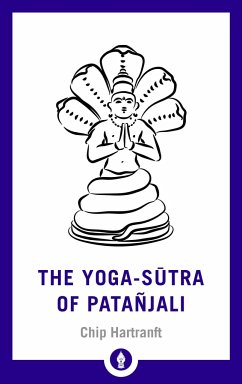
Indian Philosophy and Yoga in Germany
Versandkostenfrei!
Versandfertig in 6-10 Tagen
154,99 €
inkl. MwSt.
Weitere Ausgaben:

PAYBACK Punkte
77 °P sammeln!
This book sheds new light on the fascinating - at times dark and at times hopeful - reception of classical Yoga philosophies in Germany during the nineteenth century.When debates over God, religion, and morality were at a boiling point in Europe, Sanskrit translations of classical Indian thought became available for the first time. Almost overnight India became the centre of a major controversy concerning the origins of western religious and intellectual culture. Working forward from this controversy, this book examines how early translations of works such as the Bhagavad Gita and the Yoga Sut...
This book sheds new light on the fascinating - at times dark and at times hopeful - reception of classical Yoga philosophies in Germany during the nineteenth century.
When debates over God, religion, and morality were at a boiling point in Europe, Sanskrit translations of classical Indian thought became available for the first time. Almost overnight India became the centre of a major controversy concerning the origins of western religious and intellectual culture. Working forward from this controversy, this book examines how early translations of works such as the Bhagavad Gita and the Yoga Sutras were caught in the crossfire of another debate concerning the rise of pantheism, as a doctrine that identifies God and nature. It shows how these theological concerns shaped the image of Indian thought in the work of Schlegel, Gunderrode, Humboldt, Hegel, Schelling, and others, lasting into the nineteenth century and beyond. Furthermore, this book explores how worries about the perceived nihilism of Yoga were addressed by key voices in the early twentieth century Indian Renaissance - notably Dasgupta, Radhakrishnan, and Bhattacharyya - who defended sophisticated counterreadings of their intellectual heritage during the colonial era.
Written for non-specialists, Indian Philosophy and Yoga in Germany will be of interest to students and scholars working on nineteenth-century philosophy, Indian philosophy, comparative philosophy, Hindu studies, intellectual history, and religious history.
The Open Access version of this book, available at www. taylorfrancis.com, has been made available under a Creative Commons Attribution-Non Commercial-No Derivatives (CC-BY-NC-ND) 4.0 license. Any third party material in this book is not included in the OA Creative Commons license, unless indicated otherwise in a credit line to the material. Please direct any permissions enquiries to the original rightsholder. The Open Access version of this book was published with the support of the Social Sciences and Humanities Research Council of Canada (SSHRC).
When debates over God, religion, and morality were at a boiling point in Europe, Sanskrit translations of classical Indian thought became available for the first time. Almost overnight India became the centre of a major controversy concerning the origins of western religious and intellectual culture. Working forward from this controversy, this book examines how early translations of works such as the Bhagavad Gita and the Yoga Sutras were caught in the crossfire of another debate concerning the rise of pantheism, as a doctrine that identifies God and nature. It shows how these theological concerns shaped the image of Indian thought in the work of Schlegel, Gunderrode, Humboldt, Hegel, Schelling, and others, lasting into the nineteenth century and beyond. Furthermore, this book explores how worries about the perceived nihilism of Yoga were addressed by key voices in the early twentieth century Indian Renaissance - notably Dasgupta, Radhakrishnan, and Bhattacharyya - who defended sophisticated counterreadings of their intellectual heritage during the colonial era.
Written for non-specialists, Indian Philosophy and Yoga in Germany will be of interest to students and scholars working on nineteenth-century philosophy, Indian philosophy, comparative philosophy, Hindu studies, intellectual history, and religious history.
The Open Access version of this book, available at www. taylorfrancis.com, has been made available under a Creative Commons Attribution-Non Commercial-No Derivatives (CC-BY-NC-ND) 4.0 license. Any third party material in this book is not included in the OA Creative Commons license, unless indicated otherwise in a credit line to the material. Please direct any permissions enquiries to the original rightsholder. The Open Access version of this book was published with the support of the Social Sciences and Humanities Research Council of Canada (SSHRC).






